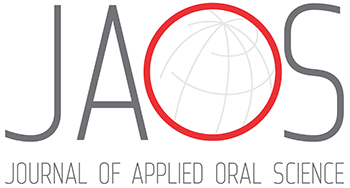The present study aimed to evaluate and compare the antimicrobial effect of MTA Dentsply, MTA Angelus, Calcium Hydroxide and Portland cement. Four reference bacterial strains were used: Pseudomonas aeruginosa, Escherichia coli, Bacteroides fragilis, and Enterococcus faecalis. Plates containing Mueller-Hinton agar supplemented with 5% sheep blood, hemin, and menadione were inoculated with the bacterial suspensions. Subsequently, wells were prepared and immediately filled with materials and incubated at 37ºC for 48 hours under anaerobic conditions, except P. aeruginosa. The diameters of inhibition zones were measured, and data analyzed using ANOVA and the Tukey test with 1% level of significance. MTA Dentsply, MTA Angelus and Portland cement inhibited the growth of P. aeruginosa. Calcium Hydroxide was effective against P. aeruginosa and B. fragillis. Under anaerobic conditions, which may hamper the formation of reactive oxygen species, the materials failed to inhibit E. faecalis, and E. coli.
Mineral trioxide aggregate; Calcium hydroxide; Portland cement; Antimicrobial activity


